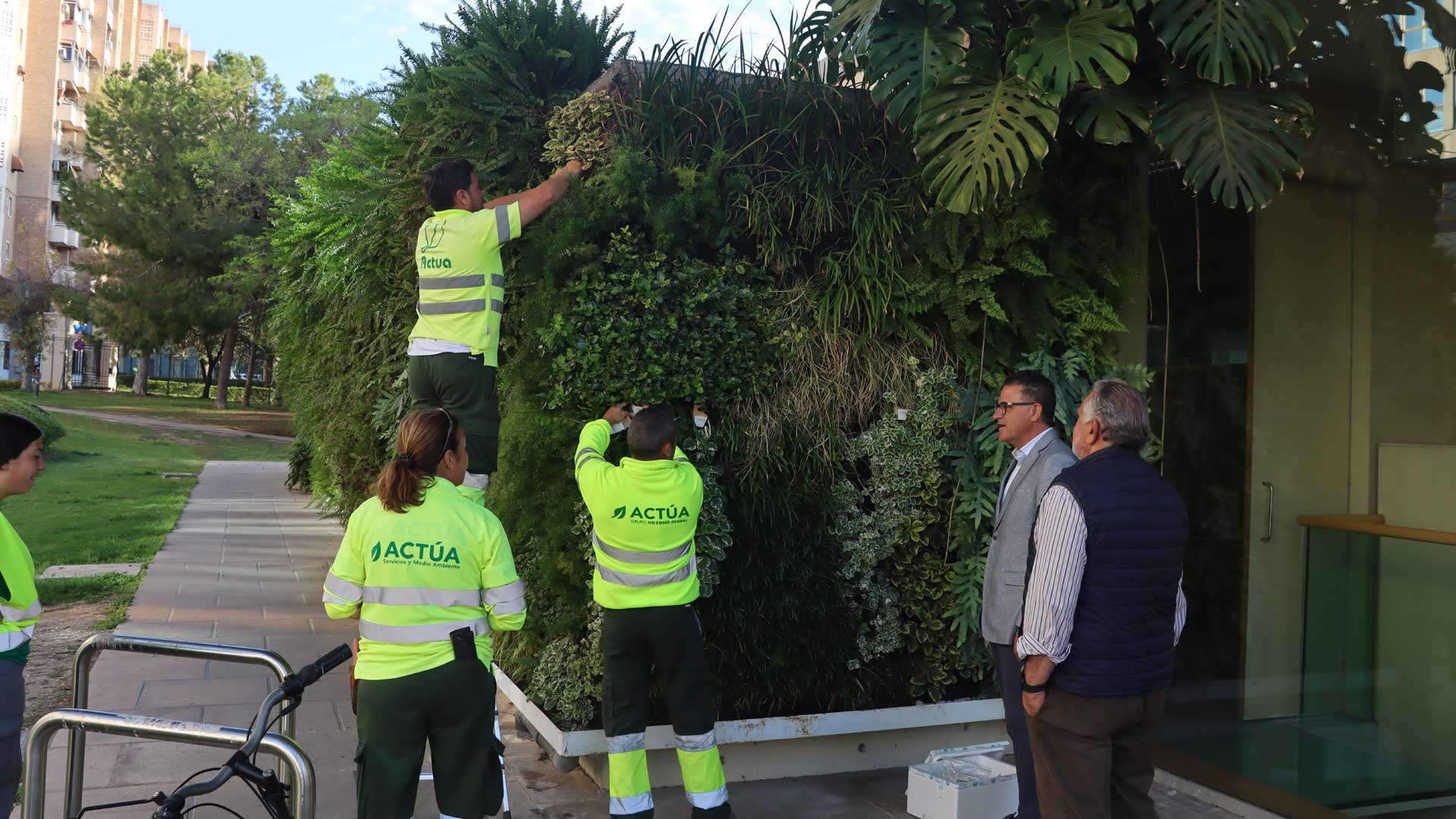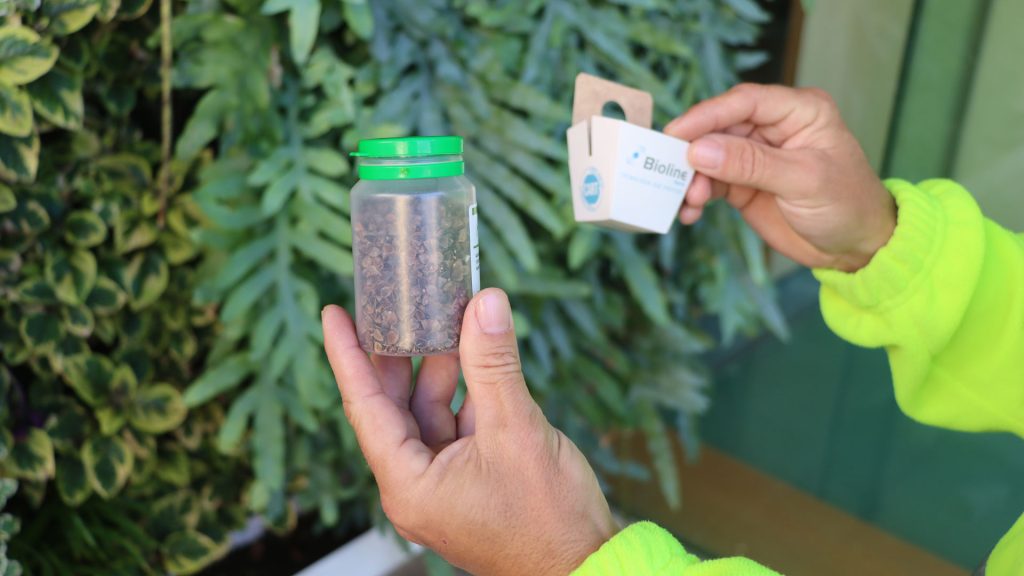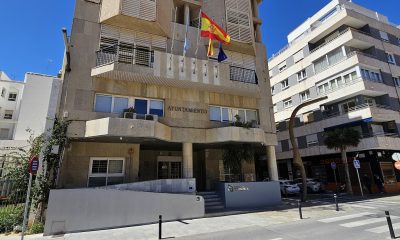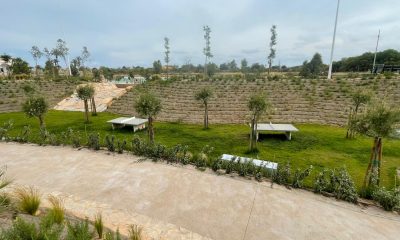News
25 social houses are available in Alicante, with rentals starting at €120.

By allocating 25 social apartments utilising a creative, more flexible, and easily accessible management system, the Alicante Housing Board has demonstrated its dedication to housing access. These reasonably priced rentals, which are a component of the youth, intergenerational, and general emancipation programs, are already helping 43 people.
What is the operation of the new system?
Access to these residences has been streamlined since September 2024; all applicants must do to qualify for a flat is provide a responsible declaration. This modification has made it possible for the pool to stay open indefinitely, ensuring increased efficiency and transparency in the distribution process.
Beneficiaries include a variety of demographics, including young people who want to be independent, elderly people who live alone, and intergenerational cohabitation, which is a system where two 24-year-olds live with elderly people. This strategy can also help families in precarious situations, where the average applicant is 48 years old and the family size ranges from three to five.
These residences range in price from 120 to 299 euros, including community fees, and have an average surface size of 50 m².
There will soon be more social homes available.
Carlos de Juan, the Housing Councillor, underlines that this is just the start: the proposal for 6,000 new homes in Alicante includes the construction of 2,000 protected homes. Furthermore, new construction is already under way, including the repair of 14 homes in San Gabriel, the construction of 32 new apartments in San Blas, and the construction of 15 residences in the Old Town.
Those who need homes the most can now find them thanks to the 463 inexpensive rental units and 746 social rental units already available.
Discover more from Costa Blanca Daily
Subscribe to get the latest posts sent to your email.
Costa Blanca
Crime fell by 5% during the first quarter of 2025 in the Valencian Community

The crime rate in the Valencian Community decreased by 5% in the first quarter of this year compared to the same period in 2024, making it the region with the second-largest decline in criminal offences, trailing only Catalonia (6%).
Between January and March, 66,659 crimes were perpetrated in the Valencian Community, compared to 70,179 criminal offences recorded in the same months the previous year.
In Spain, the rate fell by 2.8% in the first quarter of 2025, but rapes grew by 7.6%, as did drug trafficking (4.9%) and attempted murders (19.9%).
According to the Ministry of the Interior’s first quarter of 2025 report, a total of 589,683 criminal offences were registered in the first three months of the year, with 468,104 of them being conventional crime (79.4%) and the balance being cybercrime.
The traditional crime rate, at 40.6 offences per thousand residents, is one of the lowest in historical records and one of the lowest in the world, following a 3.2% decrease in these crimes in March.
Online crimes are at 9.5 per thousand inhabitants, a 1.2% drop
In reality, cyber fraud (87.8% of all cybercrime) declined by 3.5% in March, confirming a shift in the increasing trend that began in 2011 and ended for the first time in 2024.
The Interior Ministry emphasises the progress of this crime over time, noting that it climbed nearly sixfold between 2016 and 2024, when it increased by 488.3%.
Rapes are increasing, but at a lesser rate.
Penetrative sexual assaults increased again to 1,242 in the first three months of the year, 7.6% more than in the same time in 2024. Other crimes against sexual freedom also climbed, this time by 2.5%.
The growth rate for all offences against sexual freedom is 3.8%, which is lower than in previous years, as the year-on-year increase between 2023 and 2024 was 5.7%. In a statement, the Ministry of the Interior relates these figures to policies aimed at raising awareness and reducing tolerance for these crimes, which leads to more reports.
84 completed homicides and 319 attempted homicides up to March
In the first three months of 2025, there were 84 intentional homicides and completed murders, a reduction of 11.6%. In contrast, attempted homicides and murders rose by 19.9%, to 319.
Crimes of bodily harm and rioting also climbed by 2.1% compared to the same time in 2024, totalling 6,374. Kidnapping figures remained constant, from 28 in the first quarter of 2024 to 26 in the first quarter of 2025.
There is more drug trafficking and fewer robberies
Drug trafficking offences rose by 4.9% in the first quarter, reaching 5,287. The Ministry of the Interior credits this increase to the operations of the State Security Forces and Corps as outlined in specific programmes such as the Special Security Plan for Campo de Gibraltar.
Because very few complaints are lodged in this area, the Interior Ministry considers the increase to be an “indicator of police activity against this type of crime.”
On the other hand, all property crimes, which make up 42.5% of all conventional crime, fell by 5.3%.
Consequently, there was a decrease in robberies involving violence and intimidation (-9.4%), robberies involving force in residences, establishments, and other facilities (-14.3%), thefts (-3.3%), and car thefts (-3.2%).
Autonomous communities commit crimes
Catalonia (-6%), the Valencian Community (-5%), and the Region of Murcia (-3.9%) are the autonomous communities with the highest reductions in crime during the last year.
It also fell in the Canary Islands (-3.8%), the Community of Madrid (-3.5%), the Balearic Islands (-3%), the Basque Country (-1.8%), and Andalusia (-0.6%), among other areas.
Castile and León, on the other hand, has had the greatest increase in crime in the first three months of the year, up 5%. Ceuta followed with a 3.3% increase, while Asturias saw a 2.8% gain. Crime rates have also risen in Aragon (2%), Extremadura (1.4%), and Galicia (1%).
The Interior Ministry’s statistics include data from the National Police, the Civil Guard, regional security forces, and numerous local bodies.
Discover more from Costa Blanca Daily
Subscribe to get the latest posts sent to your email.
Costa Blanca
Former hair salon employee arrested, accused of stealing 2,800 euros and threats to kill

The National Police have arrested a former employee of a hair salon in Alcoy on charges of stealing 2,800 euros from the company’s accounting book and threatening to kill his former employer and set fire to the property.
The investigation began after the proprietor of this establishment filed a complaint, claiming that a former employee, whom he had fired and paid severance compensation to a few days prior, issued these threats after discovering that he had seemingly kept the money. According to a police statement, the accused also told the victim that he had nothing to lose and planned to flee to his home country following the incident.
Officers from the Alcoy Police Station’s Judicial Police Brigade conducted a series of checks before apprehending the accused, who was charged with misappropriation of property and making threats.
Following police investigations, the 32-year-old man appeared before the Alcoy investigative court.
Discover more from Costa Blanca Daily
Subscribe to get the latest posts sent to your email.
Costa Blanca
Benidorm uses ‘useful insects’ to control pests in local trees and gardens

The Benidorm City Council’s Department of Parks and Gardens is employing a variety of biological techniques to manage insect pests that threaten a considerable portion of the municipality’s trees, as well as the plants and shrubs in the gardens, each year. The coming of spring and the approaching summer are the most favourable seasons of year for pest development in trees and gardens, as warm and humid climatic conditions promote their reproduction and activity.
To reduce the impact of these pests on the municipal green heritage, the City Council uses “biological control,” which involves the use of living organisms, such as “useful fauna, predators, parasites, or pathogens that are used to eliminate pest populations that affect ornamental plants, whether trees or shrubs,” according to José Ramón González de Zárate, Councillor for Parks and Gardens. Using this method, the city stays a “phosphate pesticide-free zone,” according to the councillor.
Beneficial insects are released from abundantly planted streets and highways, including Secretaría Juan Antonio Baldoví, Alcalde Vicente Pérez Devesa, Francia, and flowerbed regions. These trees include jacarandas, tipuanas, ficus trees, rosebushes, and cypress.
This technique has also been used in the parks of Sèquia Mare, Rincón de Loix, La Cala urban park, and the remainder of the rose gardens. González de Zárate mentioned the employment of insects like ladybirds to manage aphids, parasitic wasps (parasitic) that lay their eggs within caterpillars, and fungi and bacteria that infect dangerous insects. “These techniques offer only advantages because they do not contaminate the environment at all, and you can almost say that for every pest there is an insect, without affecting other species, since each predator has its preference,” according to the councillor.

The employment of these beneficial insects has long-term effects, beginning with the organism’s establishment in each garden and on each plant type. In Benidorm, aphids frequently colonise jacaranda and tipuana trees, while thrips prefer ficus. “We use this beneficial fauna to keep the most harmful insects at bay,” the councillor explained.
The City Council uses various types of insects depending on the specific specimens and species it aims to conserve. Lacewings attack aphids, caterpillars, thrips, scale insects, and other soft-bodied insects; coccinellids consume mites and scale insects; phitoseid mites combat red spider mites; and the aforementioned parasitoid wasps consume whiteflies and aphids.
According to González de Zárate, utilising these tactics has apparent benefits because it “reduces the use of chemical insecticides on trees and flowerbeds, thus protecting pollinators.” It also increases the sustainability of decorative crops and, most importantly, protects citizens’ health by avoiding exposing them to any toxins.
Discover more from Costa Blanca Daily
Subscribe to get the latest posts sent to your email.
-

 Costa Blanca6 days ago
Costa Blanca6 days agoThe El Raso, Guardamar celebrates with a Tapas Route and concerts between May 15th and 17th
-

 Costa Blanca6 days ago
Costa Blanca6 days agoAP7 Motorway tunnel at Pilar de la Horadada CLOSED due to fire
-

 Costa Blanca2 weeks ago
Costa Blanca2 weeks agoGreen light for drafting of park-and-ride parking project in Torrevieja
-

 News1 week ago
News1 week agoFour people arrested in Alicante province for storing and exchanging child pornography
-

 Costa Blanca6 days ago
Costa Blanca6 days agoElche joins the national protests for Palestine on May 10th
-

 Costa Blanca2 weeks ago
Costa Blanca2 weeks agoElche prohibits the sale and consumption of sunflower seeds to protect the Martínez Valero stadium
-

 Costa Blanca1 week ago
Costa Blanca1 week agoOne dead when a motorcycle collides with truck on Orihuela Costa
-

 Costa Blanca2 weeks ago
Costa Blanca2 weeks agoSquatter arrested after setting fire to a house in Alicante












